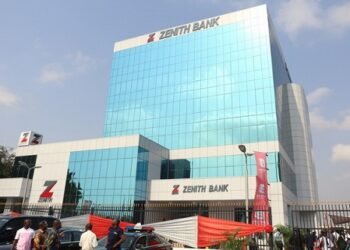The Bank of Ghana (BoG) has partnered with the International Finance Corporation (IFC), and the State Secretariat for Economic Affairs, Switzerland (SECO) to launch the Integrated Environment, Social and Governance (IESG) Ghana Programme to Promote sustainable banking in Ghana.
The IESG Ghana Programme, which is a strategic partnership between the above institutions, is expected to bring transformation to the banking sector. Its core mission is to empower banks to effectively manage their environmental, social, and governance (ESG) risks, contributing to a more sustainable and resilient economy.
By fostering an enabling environment for sustainable banking and enhancing ESG practices among financial intermediaries and corporate clients, the program aims to stimulate investment in vital sectors, fortify local businesses, and ultimately drive economic diversification.
Meanwhile, with the support of SECO’s funding, this pioneering four-year initiative seeks to revolutionize banking practices in Ghana, embedding sustainable banking as a fundamental aspect of the country’s financial landscape.
One of the key objectives of the partnership is to bolster the implementation of the Ghana Sustainable Banking Principles, a framework developed jointly by BoG, the Environmental Protection Agency (EPA), and the Ghana Association of Banks (GAB).
By supporting BoG’s regulatory efforts in the ESG domain, IFC will facilitate the adoption of best practices across the banking sector, ensuring adherence to the seven principles that underpin sustainable banking in Ghana.
Mrs. Elsie Addo Awadzi, Second Deputy Governor of the Bank of Ghana, speaking at the launch, expressed her optimism about the far-reaching impact of the new partnership. She emphasized the significance of sustainable banking in addressing the structural vulnerabilities of Ghana’s economy, while fostering long-term value for all stakeholders.
Pivotal Roles Played by the EPA and GAB
Mrs. Awadzi also acknowledged the pivotal role played by the EPA and GAB, emphasizing the importance of their continued collaboration to elevate the success of the Sustainable Banking Principles.
The Second Deputy Governor also commended the longstanding alliance between BoG, IFC, and SECO, which has yielded fruitful outcomes in capacity building and the development of market infrastructure for Ghana’s financial sector. “Notably, the IFC, in close collaboration with SECO, have been instrumental in the creation of the Sustainable Banking Principles and Sector Guidance Notes, providing essential guidance for sustainable banking practices in the country,” she said.
Since the introduction of the Sustainable Banking Principles in November 2019, the IFC has been providing crucial technical support to BoG, aiding the design and implementation of a standardized reporting template.
This template enables banks to transparently communicate their compliance with the principles to BoG’s Banking Supervision Department, promoting greater accountability and adherence to sustainable banking norms.
Furthermore, the IFC has played a pivotal role in capacity building initiatives for BoG staff, empowering them with the knowledge and tools necessary to navigate ESG-related matters effectively.
Additionally, in line with Principle 2 of the Sustainable Banking Principles, the IFC has supported BoG in developing a comprehensive roadmap to ensure the institution’s internal sustainability commitments.
Not limited to BoG alone, the IFC has extended its support to the broader banking industry by crafting a capacity building roadmap. This roadmap, currently being implemented, aims to enhance the industry’s ability to effectively embrace and implement the Sustainable Banking Principles by the end of 2023.
The launch of the IESG Ghana Programme represents a significant milestone in the journey towards a sustainable future for Ghana’s banking sector and economy at large.
By forging this transformative partnership, the Bank of Ghana, the International Finance Corporation, and the State Secretariat for Economic Affairs, Switzerland, are set to drive lasting change, firmly embedding sustainable banking practices in Ghana and fostering a more resilient and equitable future.
READ ALSO: African Refiners and Distributors Association Calls for Downstream Petroleum Project Funding







